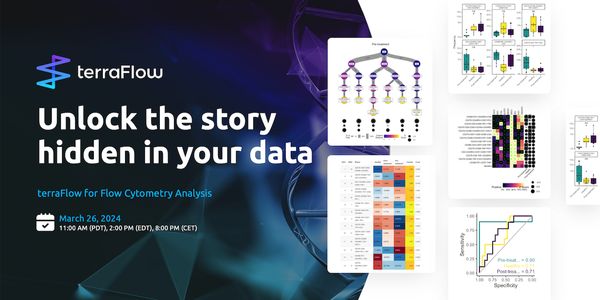Rational Drug Design
Rational Drug Design is a process of developing and discovering new drugs by studying the target of the drug. The intended target of a drug is usually a protein or receptor which can be activated or blocked when targeted by a drug. In order for rational drug design to be effective, the investigators must first obtain significant knowledge of the target including its structure, function, and mechanisms in which it participates.
-
MAR 26, 2024 | 11:00 AMEver wonder what you’re missing in your data? The sheer complexity of today’s flow and mass cytometry datasets demands automated solutions. Machine learning plugins only provide...NOV 07, 2023 | 10:00 AMIn the last 5 years, the US Food and Drug Administration has approved 4 anti-CD19 chimeric antigen receptor T cell (CART19) products for relapsed/refractory B cell lymphomas and leukemia. Ho...My laboratory uses tools from pharmacology, genomics, and cell signaling to study two key aspects of cancer biology. First, we seek to understand how oncogenic signals, altered metabolic sta...
NOV 16, 2021 | 9:00 AM
Date: November 16, 2021 Time: 9:00am (PDT), 12:00pm (EDT) Discovery in biological research was historically driven by empirical methods. The advent of biological engineering, propelled by te...
JUL 27, 2021 | 9:00 AM
Date: July 27, 2021 Time: 9:00am PDT Dr. Yuri Iozzo presents "An integrated structural biology platform specialized for sub-100 kDa protein complexes to support biologics discovery and...
Speaker:
Yuri Iozzo
, Dan Cannon
Presented at: Thermo Fisher Scientific - Electron Microscopy Webinars
Sponsored By: Thermo Fisher Scientific
Sponsored By: Thermo Fisher Scientific
JUN 24, 2021 | 9:00 AM
Date: June 24, 2021 Time: 9:00am PDT Currently, there are insufficient therapies to fully eradicate human cancer or predict who it will strike. Rational-drug design based on structural insi...
G protein-coupled receptors (GPCRs) are among the most intensively studied drug targets, and account for about ~34% of all drugs approved by the FDA. Examples of drugs targeting GPCRs includ...
Speaker:
Annette Gilchrist, PhD
, Professor Kevin Pfleger, MA, PhD, FBPhS
, Juan José Fung, PhD
, Aarti Kawatkar
, Yamina A. Berchiche, PhD
, Ajay Yekkirala, PhD
Presented at: Drug Discovery & Development Virtual Event Series 2021
This drug development program is designed to create a family of broad-spectrum, pan-coronaviral drugs that respectively inhibit multiple key enzymes required for viral replication. By target...
NOV 19, 2020 | 9:00 AM
DATE: November 19, 2020 TIME: 9:00am PT, 12am ET Knowledge of the three-dimensional structure of therapeutically relevant targets has become an essential step in the pipeline of drug discove...
Tumor phenotypes are dictated not only by the neoplastic cell component, but also by the tumor microenvironment (TME), which is inherently immuno-suppressive, is equipped to hamper effector...
Speaker:
Dr. Sergio Rutella
Presented at: Cancer Research & Oncology Week Virtual Event Series 2020
Sponsored By: NanoString Technologies
Sponsored By: NanoString Technologies
CRISPR-based genome editing has accelerated biological research and holds great potential for studying and treating human diseases. The CRISPR-Cas9 system requires a Cas9 nuclease and a guid...
Speaker:
James Goldmeyer, PhD
Combinatorial inhibition of effector and feedback pathways is a promising treatment strategy for KRAS mutant cancers. However, the particular pathways that should be targeted to optimize the...
A key step in the clinical production of CAR T cells is the expansion of engineered T cells. To generate enough cells for viable adoptive cell therapy, cells must be robustly stimulated, whi...
Speaker:
Pratip K. Chattopadhyay
Our laboratory uses tools from pharmacology, genomics, and cell signaling to identify new precision anticancer therapeutic strategies. Under this broad heading, our work involves three key a...




















